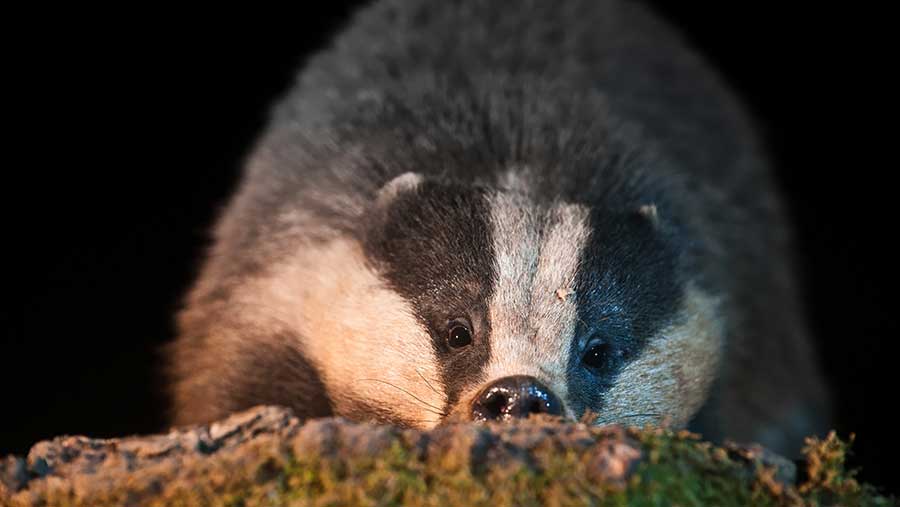Badger cull extended to Cheshire and Wiltshire
 © Richard Costin/FLPA/imageBroker/Rex/Shutterstock
© Richard Costin/FLPA/imageBroker/Rex/Shutterstock Badger culling will take place in Cheshire and Wiltshire this autumn, as the government ramps up its efforts to tackle bovine TB.
New four-year culling licences were granted by Natural England for parts of each county on Monday (11 September).
In Wiltshire, marksmen have been issued licences to cull badgers in three zones over a three-month period.
See also: Supplementary badger culling resumes in Somerset and Gloucestershire
Across the county, a minimum of 5,376 and a maximum of 7,296 badgers must be removed this autumn to reach culling targets.
In Cheshire, culling will take place across one zone where a minimum of 563 and a maximum of 764 badgers must be removed this autumn.
Eleven additional licences for badger control were announced, bringing the total number of culling zones in existence across England to 21, including parts of Devon, Cornwall, Dorset, Herefordshire, Somerset and Gloucestershire.
In total, a minimum of 21,981 badgers will be culled across all counties this autumn. However, the licences permit as many as 33,841 badgers to be removed.
Since culling began in Somerset and Gloucestershire in 2013, more than 14,800 have been removed, as part of Defra’s 25-year plan to eradicate bovine TB.
Natural England has already granted five-year licences for supplementary badger control in the Gloucestershire and Somerset cull zones after both completed their original four-year licences.
TB advisory service
Meanwhile, Defra has announced a contract has been awarded to deliver a new TB advisory service for farmers to provide advice on farm and by phone or email to farmers in high-risk and edge areas on bovine TB biosecurity and risk-based trading. The new service is set to launch this autumn.
The Badger Edge Vaccination Scheme (Bevs) has also relaunched following suspension due to a global shortage of TB vaccine. Groups are being invited to submit expressions of interest to receive 50% funding from a £700,000 funding pot over four years.
The NFU welcomed the TB strategy update, especially the creation of a new TB advisory service, which the union has been lobbying the government to introduce to play a “valuable role to tackle TB”.
“The NFU has always supported a comprehensive and proportionate eradication strategy, which balances disease controls measures with business sustainability,” said NFU deputy president Minette Batters.
“We must have every option available to us to tackle bovine TB – including cattle testing, cattle movement restrictions, biosecurity advice, vaccination and control of the disease in wildlife.”
According to Defra, bovine TB costs taxpayers more than £100m every year and England has the highest incidence of the disease in Europe.
In 2016, more than 29,000 cattle had to be slaughtered in England to control the disease, causing devastation and distress to farmers and rural communities.
